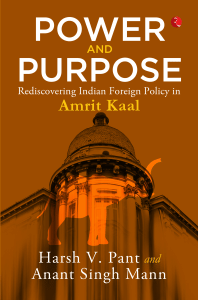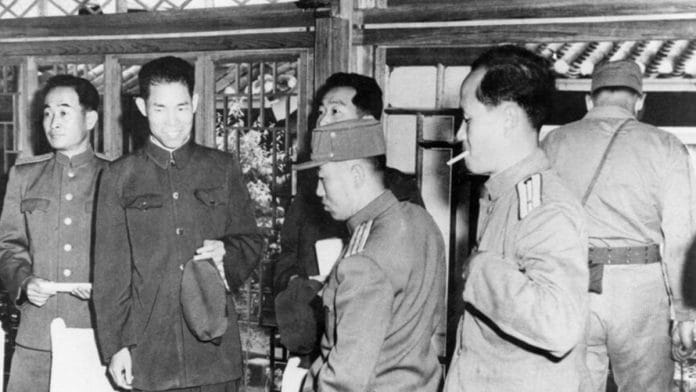The Korean crisis, beginning with North Korea’s invasion of South Korea in June 1950, proved to be one of the most devastating humanitarian crises in the post-war period, with conservative estimates indicating more than a million civilian deaths, caused by military forces from both sides.
The Korean crisis also represented one of the first instances of the catastrophe that awaited nations that became collateral damage caught in the struggle for global domination between the United States (US) and the Soviet Union (USSR). This period, which later came to be known as the era of the Cold War, continued to define the state of international relations for more than four decades, ending in the early 1990s.
The complex contemporary history of Korea began to unfold in 1945, with the nation getting divided into two parts, the north under the control of the USSR, and the south administered by the United States. The two governments that grew out of foreign domination on the two parts of Korea subscribed to the political and economic structures of the Cold War blocs that sustained them. Hostilities between the two governments continued, with the eventual invasion of the South by the North in 1950. Other developments in the Cold War, which preceded this invasion, included the worsening of hostilities between the two blocs, the Berlin airlifts of 1948–49, the formation of the North Atlantic Treaty Organization (NATO) in 1949, and the Soviets conducting a successful nuclear test in 1949.
The Korean crisis was also the moment when Indian foreign policy engaged in one of its first significant international efforts to support a peaceful resolution of conflict. Despite it being beyond the boundaries of the Indian security calculus, India actively took part in the peace-building efforts. Being an outwardly neutral nation at the time, India did not provide field combatants, but instead supplied a medical unit, which assisted around 200,000 wounded people and carried out 2,300 field surgeries in the duration of the crisis. It also provided a second contingent, called Custodian Force India, which assisted in the repatriation of the prisoners of war (POWs).
On the diplomatic stage, India played a crucial role in negotiating a peaceful settlement. Apart from its active participation in the United Nations to find a durable and lasting solution to the larger crisis, India also helped negotiate on the fate of more than 2,00,000 POWs between the two Cold War blocs. While the UN endorsed voluntary repatriation, the Communist Bloc demanded forced repatriation. Two commissions were constituted by the United Nations General Assembly, one tasked to supervise the ceasefire, and the other tasked with the repatriation of the POWs. India, with its neutral position, was made the chairman of the latter, which helped facilitate the protection and relocation of POWs who refused to be repatriated.
The Korean War was a defining moment for Indian foreign policy, in which it recognized that its own peace and security were fundamentally linked to wider regional and global security challenges. India’s willingness to rise to the occasion and engage internationally barely three years post-Independence, has remained representative of its awareness of its duty towards the global community. More broadly, the impacts of the crisis, and its clear positivist linkages with the evolution of the Cold War, resonated deeply in Indian foreign policy. The polarization of the globe into two nuclear-powered blocs had brought the prospect of a catastrophic war perilously close to reality during this crisis. Unlike the Second World War, both sides now had cataclysmic capabilities, borne by nuclear weapons. Notwithstanding the nuclear option, the Korean crisis had also been representative of the devastation that was possible for nations caught in the crossfire, from widely available conventional weapons systems.
The urgency of not falling into this web of warring blocs became profound in New Delhi’s strategic vision. Although the ideas of self-sufficiency, sovereignty in external decision-making, and an anti-imperial stand had been incorporated by India since its struggle for independence, the Korean crisis further catalyzed and highlighted the fundamental significance of maintaining a policy of non-alignment in a dangerously polarized international system. Furthermore, in contrast to strategic alignments, New Delhi strengthened its appeal to the Third World to remain removed from the politics of the Cold War, and, instead, stand together, united in solidarity with one another, to support decolonization and collaborate on development.
Beyond being a petri dish for Nehru’s policy of neutrality, which, at the time, pre-dated the idea of non-alignment, the crisis showcased that India was diplomatically capable of punching far beyond its weight, just three years after its Independence, and despite the inheritance of fragile economic structures and military capabilities. Against this backdrop, New Delhi’s foreign policy achievement in functioning as an unbiased agent of peace in a complex international crisis earned it extensive global credibility.

This excerpt from ‘Power and Purpose’ by Harsh V Pant and Anant Singh Mann has been published with permission from Rupa Publications.






